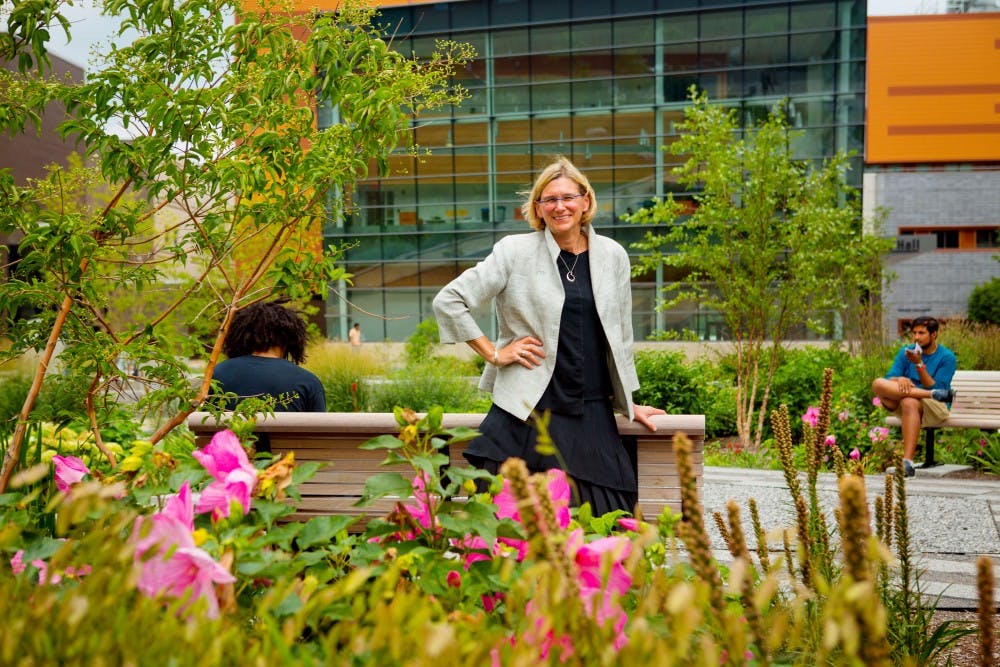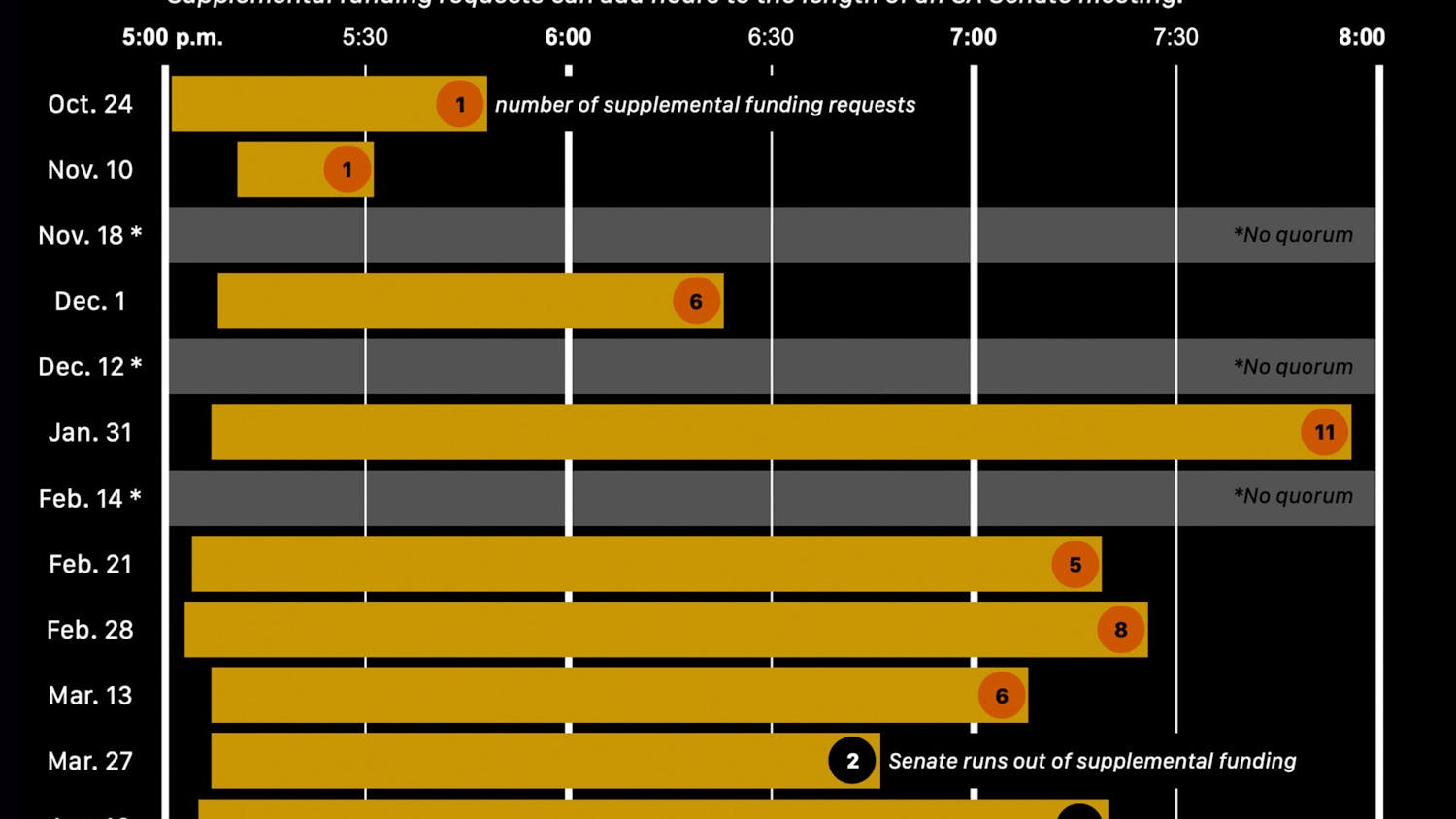Before she was Dean of the School of Engineering and Applied Sciences at UB, Liesl Folks dealt with gender discrimination in the workplace.
In a sit-down interview with The Spectrum, Folks recalled specifically avoiding a male colleague at work. He’d often walk up behind her and start massaging her shoulders when she had to perform electron microscopes in dark, soundproof rooms.
“I would just run away. Every time,” Folks said. “I never dealt with it, never told anyone except my colleagues. I told them he creeped me out but no one did anything about it. I should have, but I didn’t.”
Now Folks is leading a research team looking to help female students entering the workforce deal with gender discrimination. Folks said she feels women in STEM fields are still not always equipped with the skills to navigate past obstacles that could derail their careers.
The research team received nearly $500,000 in National Science Foundation grants to fund the project for three years, according to Folks. The team will follow a group of female STEM graduate students through their careers to better study gender discrimination in the workplace.
The grant also gives female STEM graduate students the chance to attend retreats and workshops focused on discussing real life scenarios of gender discrimination and bias through the case study method, according to Folks.
Around 35 students attended the project’s first three-day retreat in January at Beaver Hollow Conference Center in Java Center, New York. Students listened to researchers and keynote speakers discuss “theoretical angles” of gender discrimination in academia and workforce, according to participant Zhasmina Tacheva, a Ph.D student in the School of Management.
Tacheva said the case studies presented at the retreat showed the life of a hypothetical Ph.D student about to embark on her dissertation, and the struggle of being passed over for a promotion because of gender bias.
Glenna Bett, an associate professor in the department of obstetrics and gynecology, presented a case study where a female CEO was not addressed by a specific pronoun, leaving the students to assume the CEO was male. The scenario stood out to Tacheva.
“Glenna explained that this little detail was included on purpose, in order to catch us in our unexamined bias in believing that senior partners, CEOs and other people in senior positions tend to be male,” Tacheva said. “She called us out on that.”
All the case studies used throughout their research will be available at National Center for Case Study Teaching in Science for others to access. Folks said professors or professionals can use the case studies to teach them in their own environments and educate women in STEM backgrounds on how to navigate their way through difficult, career-threatening situations.
When appointed dean in 2011, one of the first things Folks noticed was that the numbers of women in STEM degree programs had flatlined since 2008, and were no longer increasing.
Women currently fill 47 percent of all U.S. jobs, but only 24 percent of STEM jobs, according to the U.S. Census Bureau. Only 18 percent of the 7,520 undergraduate and graduate students enrolled in UB’s engineering school are female, according to UB’s Office of Institutional Analysis.
Gender bias in the workforce has taken on a particular importance in the wake of the #MeToo movement, which has forced dozens of high-profile men across all industries to resign amid sexual misconduct allegations.
“These experiences are so novel you don’t even have words, and you start doing this whole thing where you tell yourself ‘this can’t be happening.’ It’s the whole thing where women went and knocked on Harvey Weinstein’s hotel door, and he’s standing there in his bathrobe,” Folks said. “Why didn’t they turn around and walk away?”
Folks hopes the project will help students recognize and fight against discrimination they may encounter in their careers.
Folks will interview SUNY Chancellor Kristina Johnson, a member of the National Academy of Engineering and the National Inventors Hall of Fame, in the keynote interview of the Women in STEM Cooperative’s annual summit on April 18.
The summit, which focuses on women’s roles in advancing sustainability, is from 8:30 a.m. to 2 p.m. in the Student Union Theater, and features an array of female panelists.
Anna Savchenko is the assistant news editor and can be reached at anna.savchenko@ubspectrum.com and @@AnnaSavchenkooo.





